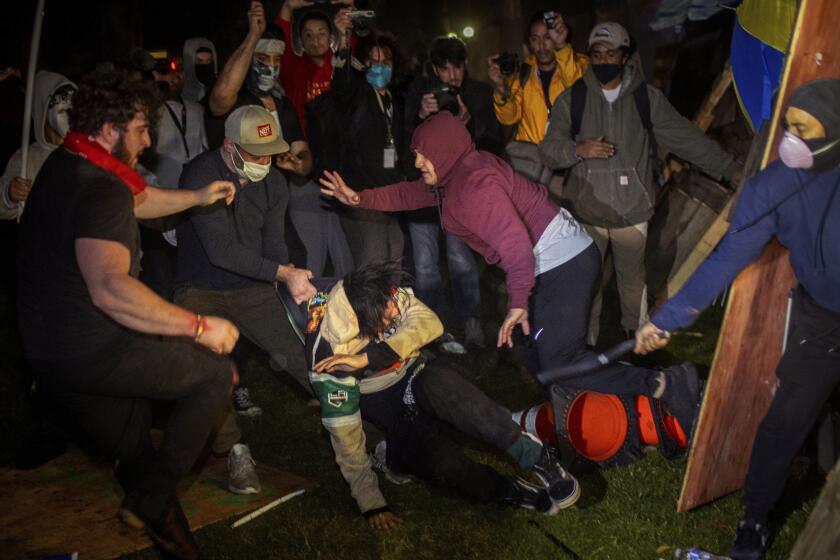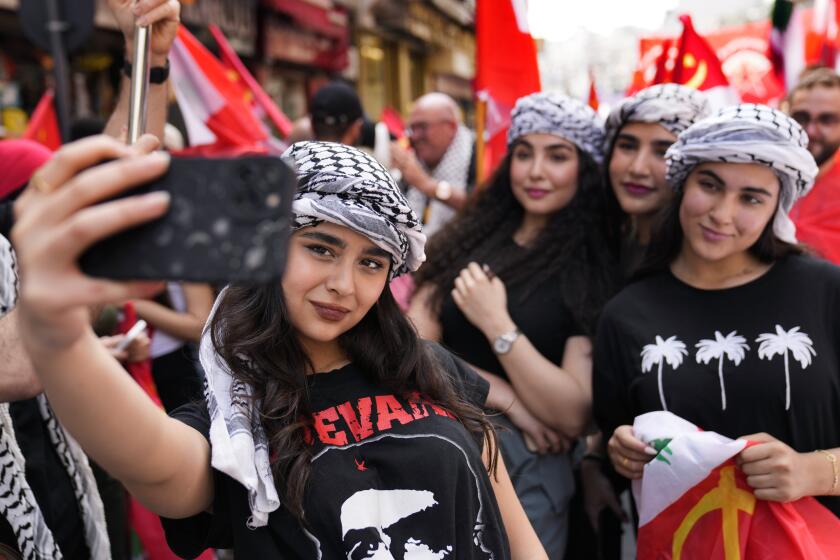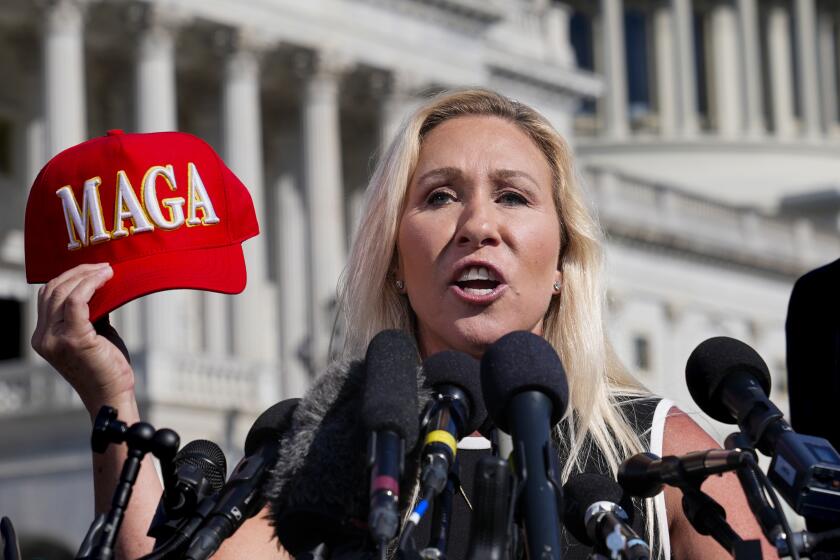New Orleans elects Mitch Landrieu mayor
Louisiana Lt. Gov. Mitch Landrieu was elected in a landslide Saturday to be this city’s first new mayor since Hurricane Katrina -- and the first white mayor in majority-black New Orleans since 1978, when his father, Maurice Edwin “Moon” Landrieu, left office.
With all 366 precincts reporting, Landrieu, 49, took 66% of the vote total. The next-highest tally went to businessman Troy Henry, who had 14%.
Landrieu’s father was a historically transitional figure who earned the respect of blacks by opening up city contracting and jobs to them. In his acceptance speech, Mitch Landrieu emphasized the message of racial unity in this often-fractious Southern metropolis. He also alluded to the flooding that consumed 80% of New Orleans in 2005, saying the vote was an attempt to “seek higher common ground when we come together as one people.”
During the campaign, Landrieu had associated his effort with that of the New Orleans Saints, whose appearance in Sunday’s Super Bowl has been a unifying force across races and classes. In closing his victory speech Saturday night, he said the team’s executive vice president, Rita Benson LeBlanc, had just sent him a text message.
“She said the people of the city did their part -- now it’s time to do ours!” he yelled, eliciting a roar.
Until the very end, the Saints’ miracle season threatened to overshadow the mayoral race. The election also came during a busy pre-Mardi Gras weekend, with parades and revelers crisscrossing the city all day Saturday. The point was underscored by a front-page headline in the Times-Picayune newspaper: “Today’s election day in N.O., too.”
Still, many voters were moved to take part in an electoral story as compelling as the saga of their beloved football team, given the rebuilding challenges and pre-Katrina problems New Orleans continues to grapple with.
Six major candidates had competed to replace Mayor C. Ray Nagin, who is leaving office because of term limits. In the 2006 election, many black voters sided with Nagin over Landrieu in part over concern that whites would not be committed to rebuilding their badly damaged neighborhoods.
But voters this year were convinced Landrieu had their best interests at heart.
Cassandra Porter, 55, said “Moon” Landrieu’s record was important to her. Of his son, she said, “I just figured it was in his blood to do the right thing.”
Porter is a teacher’s aide who lives miles from the destroyed Lower Ninth Ward house that she hopes to rebuild -- and where she retains her legal residence. It was a depressingly common predicament for voters who returned to their old neighborhood, which remains half-ruined, to cast ballots.
For some black Landrieu supporters, the calculations were more complicated. Errol Joseph, 59, said he believed the money and the will to rebuild New Orleans had been stymied by the fact that Nagin was outspoken and black -- and thus deemed untrustworthy by white leaders in Washington and Baton Rouge.
“The only way we’re going to get it, is if we get a Caucasian,” Joseph said, the “it” presumably referring to attention and funding. “They’re not going to trust the black with the money.”
In wealthy Uptown New Orleans, Helen Jenkins, a white voter, said she voted for Landrieu even though she is a registered Republican.
She said any of the candidates would be an improvement over Nagin, whom she viewed as divisive and unengaged at a crucial time in the city’s history.
“My fourth-grader could probably run things better than they’re being run right now,” she said.
richard.fausset@ latimes.com
More to Read
Start your day right
Sign up for Essential California for news, features and recommendations from the L.A. Times and beyond in your inbox six days a week.
You may occasionally receive promotional content from the Los Angeles Times.






